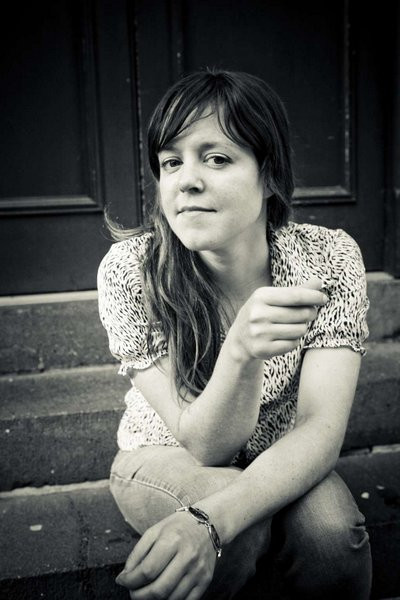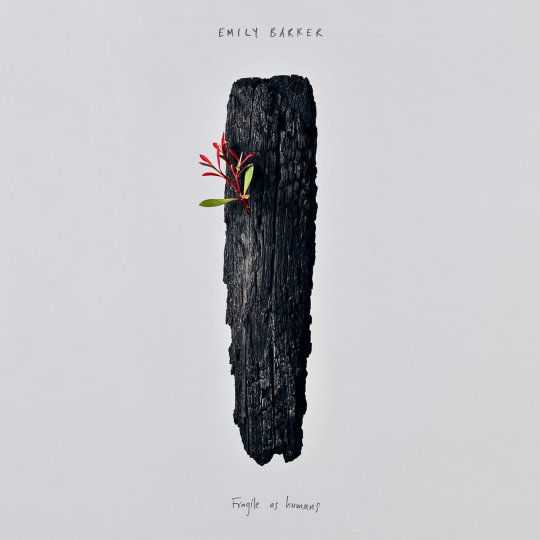#Emily Barker
Text
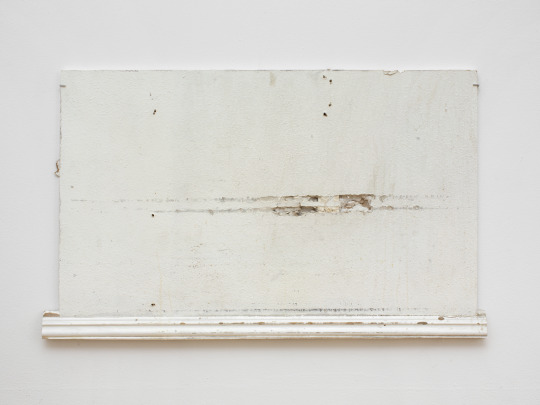
Emily Barker, Bedroom wall (under the window), (drywall and wood), 2023 [Sentiment, Zürich. © Emily Barker]


Exhibition: Emily Barker: ‘Wall Works’, Sentiment, Zürich, November 18, 2023 – January 13, 2024 (extended until January 27, 2024) [Photo: Philipp Rupp / Julien Gremaud]
34 notes
·
View notes
Text
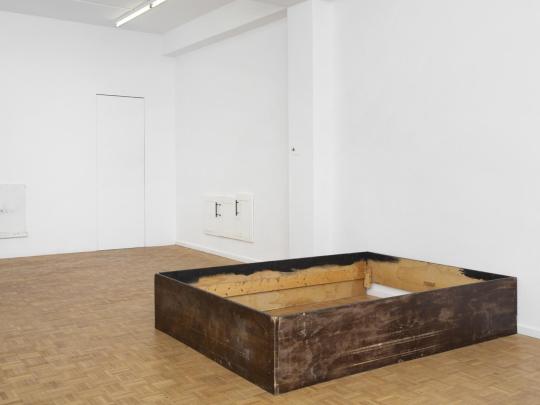

by Emily Barker
Wall Works
source: collectionarchive.tumblr.com
7 notes
·
View notes
Text
"Twelve thousand miles, away from your smile
I'm twelve thousand miles away from me
Standing on the corner of Brunswick
Got the rain coming down and mascara on my cheek"
4 notes
·
View notes
Text
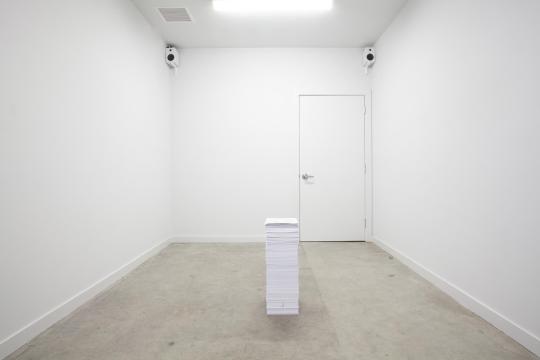

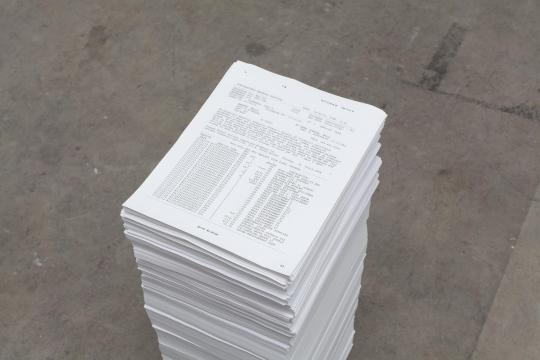
Emily Barker - Death by 7865 Paper Cuts, 2019. Xeroxed medical bills and life-care plan from 2012-2015, 7865 sheets of paper.
#i was actually in la when this exhibition was held#i wish i had known about it and had gone to see it#emily barker#chronic illness#art#health
2 notes
·
View notes
Text
Emily Barker Interview: Zooming In & Zooming Out
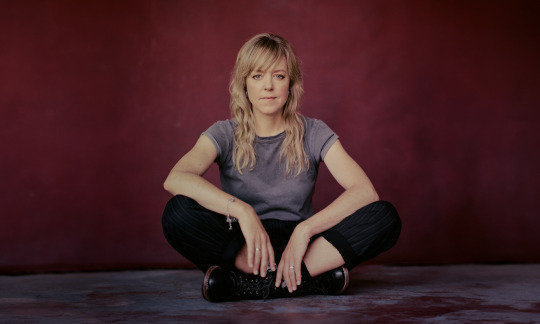
Photo by Luke David Kellett
BY JORDAN MAINZER
It's easy, and perhaps accurate, to call Fragile as Humans (Everyone Sang/Kartel Music Group) Emily Barker's most personal album to date. It was written in both hemispheres of the world, following Barker as she moved from her home in England to her native Australia. Its songs ooze a sense of specificity, inspired by brief moments of reflection and nostalgia as well as longer-term struggle and grief. Independent of whether the songs are true stories, though, they all tug at a phrase Barker said to me over Zoom back in March: "collective vulnerability." It's right there in the album's title and pervasive in its songs. Whether Barker's playing solo with minimal arrangements, encouraged by album producer Luke Potashnick, or backed by an expert band of Tim Harries (electric and double bass/piano/string arrangements), Tom Visser (drums) and Richard Causon (keys), she's all the while marveling at the weight of life.
Whether you're the type of person who looks at total strangers and makes up stories about them or sits there dying to know the real story of their lives, Fragile as Humans is the record for you, ever-curious. No, I don't mention that because one of its many highlights, the warm "Wild to be Sharing This Moment", was inspired by a similar people-watching experience Barker had. Throughout the album, she paints a picture of characters--previous versions of herself ("Call it a Day"), a boy with a Chicago Bulls hat pointed as far upward as Michael Jordan's outstretched silhouetted arm ("Fragile as Humans"), a dying Sir David Attenborough ( "Acisoma".)--all representative of universal truths. Life, like people, is fragile. Things end, including life itself. Difficulty can make you stronger. "The good times are all very well, but we don't survive that way," Barker opines on "Call it a Day", a song whose instrumental journey backs up her claim, as noisy strings and eerily discordant vocals give way to easy, strummed guitars. It's one of many moments on Fragile as Humans where Barker wears wisdom well.
As it turned out, though, Barker would need to heed her own advice. "Feathered Thing", whose title is inspired by Emily Dickinson's "'Hope' is the thing with feathers", broadly details a trying time for Barker and her partner as they tried to have a child. After many failed IVF cycles and losses, they decided not to try for kids anymore or even adopt. Barker eventually got pregnant after that decision but had a miscarriage. Intersecting moods of hope and despair sprout via the song's contrasting textures, Barker's voice, bass drones, and Reichian strings rubbing elbows with pounding piano and thumping drums. Best, the song provides a backdrop for Fragile as Humans' greatest moment of empathy, the aforementioned "Wild to be Sharing This Moment". Barker was waiting for a train and found herself imagining the lives of everyone around her, placing each person simultaneously within the story of their own lives and among global conflict. She tosses off some pearls of wisdom, like, "How can we study the wounds of our history and still send our children to war?" Most importantly, though, the song, with its built-up snare drums, buoyant acoustic guitar, sharp piano, and expansive steel guitar, uses both a microscope and a bird's eye view to consider the other, a plea for stepping back and observing in a world of shouting. After all, with everything so fragile, yelling and screaming can fracture.
Read my conversation with Barker below, edited for length and clarity, as she called in from Austin where she was performing at SXSW. We talked about the cycle of life, the power of being in spaces once occupied by geniuses, her very contemporary influences, and, yes, the Bulls.
Since I Left You: On Fragile as Humans, some of the songs are solo and more intimate-sounding, and some have a full band. Meanwhile, it's definitely a "personal" album, but it delves into a variety of topics from your life. How do you go about sequencing and creating a whole record that balances everything?
Emily Barker: Whenever I start writing, I work quite cyclically in terms of being creative. Right now, having made a record, I'll think of myself as more of a collector than a songwriter for a while. I just write notes and save them for later and sing and play guitar and piano into my phone. I'm not so keen on sitting down and doing the hard work of piecing it all together. When I first started doing the hard work and piecing things together for this album, I tried to start writing without thinking about it as an album. I would write about what I was currently exploring, whether actively trying to learn about something in particular or exploring a personal situation and putting it into song. I often find that if I [write] without the intention of trying to write towards a theme, I'll find that five songs later I accidentally have been writing about something that feels connected. A theme or themes will start to emerge, and then I'll start writing to that [theme] or through the lens of that [theme]. I often write 25 songs for an album and whittle it down with a producer towards the 10 or 12 it will be.
SILY: What was the first song you wrote for Fragile as Humans?
EB: "Acisoma", the last song on the album. I really wanted to break some of my patterns, which are quite easy to fall into when you've been writing for such a long time. In terms of chord progressions or melodies, I wanted to try to snap myself out of those modes. I wrote a lot of this album on the piano, which I had done a bit of, but most [of my previous] songs were written on guitar. The great thing about piano is it allows you to chromatically move and sound better than on a guitar. It sounds more angular. There's something quite fluid about piano. I wrote on a postcard, which I had stuck to the wall in my writing room, [the word] "experiment." So "Acisoma" was the first song I wrote after [reminding myself to experiment], and it ended up being on the album, which was a big sort of experimentation. I started moving my hands around on the piano and didn't know what chords I was playing, but I tried to get that out of my head. It sounds really simple. I learned on something that felt good and experimented with my voice a bit. I wanted to use my voice as an instrument in a way I hadn't done before. On that song in particular, I was inspired by Aldous Harding and how she uses her voice in certain songs. It sounds like a woodwind instrument. It's quite affected in moments. I'm definitely not as extreme [as that,] but it was on my mind.
SILY: Does the title of that song refer to a type of insect?
EB: It's a dragonfly. I was watching a nature documentary, and [Sir] David Attenborough was narrating it. It's quite a big, heavy thing, but the album circles the theme of death, and I was thinking about life cycles and this particular dragonfly called Attenborough's pintail from Madagascar. It was named in honor of him for all of the work he's done. It only lives for a few days but has this whole arc to its life cycle, this whole journey. I was thinking about time and life and death and Attenborough himself, having watched him so closely his entire life and [him] having such a deep understanding of life cycles. He's 94 [editor's note: Attenborough is now 97] and thinking about perhaps whether he...has a different view of death than a lot of us due to his study of the animal kingdom. Western society tends to push [death] to the side, and we don't accept it. We do everything to distract ourselves from the fact that we will all die. [laughs]
SILY: When you recorded the song, you were told that another singer who sings a lot about life and death, Nick Cave, at one point sang into the same microphone. Learning that actually informed your delivery. Has that ever happened to you before, where another artist you admire has been in the same spot you are right then and there and it affects you like that?
EB: I am so glad that Luke [Potashnick,] the producer, told me that. We recorded it in England in this old stone building, and it was quite overcast that day. There was something very intimate and introverted about it, so knowing Nick Cave had sung into that microphone gave me a little bit of confidence and a certain mood, as well, to deliver the message of the song.
SILY: The story reminds me of the Portlandia "These are the original keys used on Pet Sounds" sketch.
EB: [laughs]
SILY: But I feel like I would feel that weirdly cosmic connection, too!
EB: Definitely. I love that series as well. I want to rewatch it. It's so great.
SILY: "Call It A Day" refers to another big change for you that contextualizes this record. You moved back to Australia after two decades living in the UK. Does that song instrumentally mirror your journey living in the UK? It starts out eerily discordant and ends much warmer.
EB: That's interesting. I was living in Stroud for 13 years. At that point, I knew I was going to be leaving and felt this nostalgia already creeping in a bit, and a bit bitter about the state of affairs in the UK politically, just coming out of the pandemic and Brexit. [The song's] sort of got this British or folk element to it. Joni-esque, I suppose with the chords and strumming pattern. When we got into production, we wanted to speak to all of the other songs in terms of the sound palette. I think that's what you're saying with the softing it out.
SILY: At first, the strings are a little noisy, and your vocals are affected.
EB: Yeah, quite affected, and then it gets smoother as it moves through the song. That's a production thing, mostly, with Luke. I love what we did with that one.
SILY: On "Wild to Be Sharing This Moment", you're looking at strangers around you and wondering what their lives are like but also considering the state of the world. Is songwriting for you a way to process that mix of marveling at the world's wonders while having the capacity to be shocked at the gloom of it?
EB: Totally. It's that zooming in and zooming out thing. That song was me having an overwhelming sudden realization--it's not the first time I felt it--but when you're in a public space, and you're essentially people-watching, and you see all these strangers around you. Often, in the city, people can be introverted in their own little worlds, reading a book or listening to a music or podcast or sleeping on public transport. You have this realization that everybody has their whole lives, everything they're dealing with and have inherited from parents and grandparents, where they're from, and what their morning's been like in the lead-up to them being where they are. I felt overwhelmed by how vulnerable everybody is; that's on the zoomed-in level. Zooming out, on a mass scale, thinking about wars in different regions and all those people who are experiencing [them,] they all have their own personal worlds and lives as well. [I was thinking about] our collective vulnerability as human beings and the state of the world and feeling like it's very easy to be divided now along the lines of social media and algorithmic manipulation. We need to be able to listen to each other more and understand the life and point of view each person brings to the table. That's not necessarily saying we all should agree, but to at least listen and get some context for why people think what they think. The song is a reminder of that every time I perform it. There's been a good response to it; people feel the same thing. It's a call to compassion.
SILY: A lot of artists ended up dropping out of SXSW, playing the non-official showcases only. Gruff Rhys wrote a post that included the sentiment, "I'm choosing to not participate, but a lot of artists are still participating because they'll go into crippling debt if they don't play these shows." It was a thoughtful, good reminder of what you're talking about.
EB: That's great. I found out the day I landed [about people pulling out] and was like, "Oh, shit." It sounds like he put it well. It seems a bit narrow-minded to assume that somebody who chooses to do their official showcase is in support of the war in Palestine. It's really hard to navigate, isn't it? We could have a whole different conversation about that.
I was listening to Sarah Wilson's podcast the other day, and she was in conversation with Maggie Jackson about her new book Uncertain. It talks about us as humans sitting in uncertainty for a moment. So much is so complex--not just life in general, not just in Palestine--but taking a moment before responding or reposting, making sure you read the article, not feeling like you have to respond to something immediately or via social media at all. There are so many ways we can respond to crises. It's a very important conversation, taking action in other ways and direct ways where we can have influence. I do think social media is an important tool, but it's not the only tool.
SILY: One of the ways to take action is to share your own perspective and stories. It seems like the most honest thing to do.
EB: It can take a moment to find your truth because it's so loud out there.
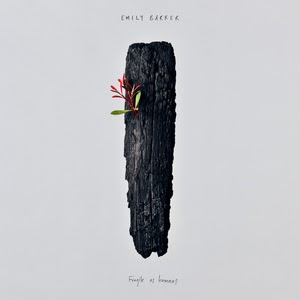
SILY: You share your perspectives and stories quite a bit on Fragile as Humans. The lead single, "Feathered Thing", is specifically about something pretty difficult in your life. Have you played that song live?
EB: I have.
SILY: Do you explain the song's context when playing it?
EB: What I tend to say live is, "This song tries to balance hope and grief, and the imagery in it is inspired by Emily Dickinson's poem ''Hope' is the thing with feathers', and there's more to it as well." I don't delve into the personal grief. The song's open enough that people can bring their own narrative to it, I suppose. It's felt good to perform it. I have talked about what the song's about in some other interviews, so I feel comfortable to do that if you want to. I think it's something universal. We all have loss in our lives. It's unavoidable. It's important to sit in that grief or discomfort to give them the respect they deserve, in a way.
SILY: You mentioned "Wild To Be Sharing This Moment" was inspired instrumentally by some contemporary artists you admire, and you've already named Aldous Harding as an influence. When I heard the banjo on "Small We Start", I couldn't help but think that the folksier country music en vogue in independent music today is something you've been doing for a while. Is that something you've noticed, and if so, what are your feelings about that trend?
EB: I think it's great. There are so many artists like Phoebe Bridgers who are classic songwriters in so many ways. I love that about her songwriting. It feels like it's come back around a bit. When I first started doing music, it wasn't long after O Brother, where art thou? came out, and Lucinda Williams' Car Wheels on a Gravel Road was taking off, as well as Gillian Welch's Time (The Revelator). That sort of music never went away, but I think people like Phoebe Bridgers bringing it into the mainstream is pretty awesome...bands like Big Thief, too. I'm in awe of [Adrianne Lenker's] solo stuff and the band's stuff. The songs stand on their own before anything is added to them. To me, that's what sets it apart. You don't need production at all. You could hear it on piano or guitar and it would be there in its fullness.
SILY: You refined these songs opening for Mary Chapin Carpenter, right?
EB: In the summer of 2022, I had met Luke Potashnick, the producer, and we started doing some pre-production, and going through everything put the songs under a microscope. I loved that; it was the first time I had done that with a producer. He comes from a songwriting background, so I really trusted his feedback. It was just minor tweaks here and there, like, "What do you think about this line?" Often, it would be the line that wasn't a placeholder but one I hadn't cracked that worked just "well enough." It was amazing that we had a similar view on stuff. When I went on tour with Mary with all these notes, in hotel rooms or on the bus, I was tweaking these songs and performing them live. I often find that when you perform them in front of an audience and hear yourself singing these lyrics or playing certain chord progressions, you can really be more objective about it. That was great to do before heading into the studio because I felt fit for many live takes having been on the road almost every night.
SILY: Did you take anything specifically from being on tour with Mary and watching her play?
EB: All the time. I've done six [tours with her] in the US and UK. I love how she connects with her audiences. She's such an introvert as a person but such a brilliant performer. I love how softly she speaks to people. You don't have to be larger than life. People are on the edge of their seat leaning in, instead of thinking, "Woah, this is a lot!" People listen. Her songs are so moving. I also think she's someone who has had a long career who has her hits from back in the day, but her passion is with her newer material. It's so profound what she writes about now and how she writes about it. I'm constantly inspired by her. She's a really dear friend after all the tours we've done together.
SILY: On the title track, you sing about falling for someone "with a Bulls cap turned to the sky." Are you referring to the Chicago Bulls?
EB: Yes. This was the 90's--Michael Jordan, Scottie Pippen, Dennis Rodman era. I was this huge NBA Basketball fan, even though I was from this tiny country town in the southwest of Australia. My brothers and I would buy the cards and play basketball before and after school. There was this one kid who I just adored--he was so lovely--he was a Maori kid from New Zealand who was great at basketball who always wore a Bulls cap to the side.
SILY: A lot of the dynasty team just came back here for an anniversary celebration, including Australia's own Luc Longley.
EB: Wow!
SILY: From what I understand, he's involved in marine conservation. And these days, he looks a lot like a 7-foot-tall Jeff Tweedy.
EB: That's hard to imagine. I'll have to look him up.
SILY: Can you tell me about the cover art for Fragile as Humans?
EB: For the first time, I was able to work with a creative agency, Headjam, based in New South Wales in Australia. I had a meeting with them--8 people, graphic designers, photographers, videographers--and they had my mini blurb about each song and the record. They asked me so many questions about the album, what films I love, what books I read, what art I enjoy, to get an idea of my personal aesthetic, I suppose. The album cover comes from [a line on] the song "The Quiet Ways", "budding branch on fallen tree," and it's partly inspired by [the line on] "Feathered Thing", "I went to the burnt-out woods / A tourist with some damaged goods." In Australia, just like many other parts of the world, we deal with fire. It's that balance of hope and grief where a piece of wood has been burned but there's green growing from it. It was amazing to work with this team of professionals and not have to come up with ideas. They came back with this beautiful package, a video treatment for "Wild to Be Sharing", and the graphics and photography of the album. It feels like a strong continuation of the narrative. It feels really cohesive. I love what they've come up with.
SILY: How many of these songs have you played live?
EB: I have played most of them live. I haven't played "Acisoma", but the other ones I think I have. I'm doing solo gigs at the moment here, so I'll just play 3 of them. A couple more if there's a piano.
SILY: Do you have a favorite of them to play?
EB: I love doing "Wild to Be Sharing This Moment", especially in a crowd that's there with you, where I can get them to sing the "ooh"s and "aah"s. It's a reinforcement of us being together in that very moment.
SILY: Are you the type of songwriter who's always writing? Is there anything next for you?
EB: I'm in that collector phase, a couple of verses here and there for things. I like to just play and not put pressure on myself to finish anything. Start things and keep them for later down the road. I've finished a couple of things, some collaborative songs I did for other people.
SILY: Is there anything you've been listening to, watching, or reading lately that's caught your attention?
EB: Sarah Wilson's podcast Wild. She interviews the greatest minds on the issues that are most of our moment. It's so inspiring how she holds complexities. She's quite brave speaking how a lot of us feel but haven't articulated yet. I love her point of view. I also subscribe to her Substack. She's my everything at the moment.
I went to a great bookshop in Austin the other day called Alienated Majesty. I got a few poetry books. I love poetry, and whenever I'm in the States or the UK, I focus on getting poets from the place I'm in. I got Larry Levis' Winter Stars.
SILY: Are you coming to Chicago?
EB: I will be. I'm not sure when. I'm coming back to the US at the end of May. When the record comes out, I'll be in the UK doing record stores, and I'll come over here and do lots of in-stores, too. That's still being put together.
#interviews#emily barker#luke david kellett#fragile as humans#everyone sang#kartel music group#luke potashnick#tim harries#tom visser#richard causon#zoom#chicago bulls#michael jordan#sir david attenborough#emily dickinson#sxsw#aldous harding#nick cave#portlandia#pet sounds#gruff rhys#sarah wilson#maggie jackson#uncertain#phoebe bridgers#o brother where art thou?#o brother where art thou#lucinda williams#car wheels on a gravel road#gillian welch
0 notes
Text
Tidal questions at my feet
Home is where the heart lines meet
Not in distance of the seas
Nor geography
Emily Barker, from her song "Geography" as recorded for her album A Dark Murmuration of Words (2020)
0 notes
Photo
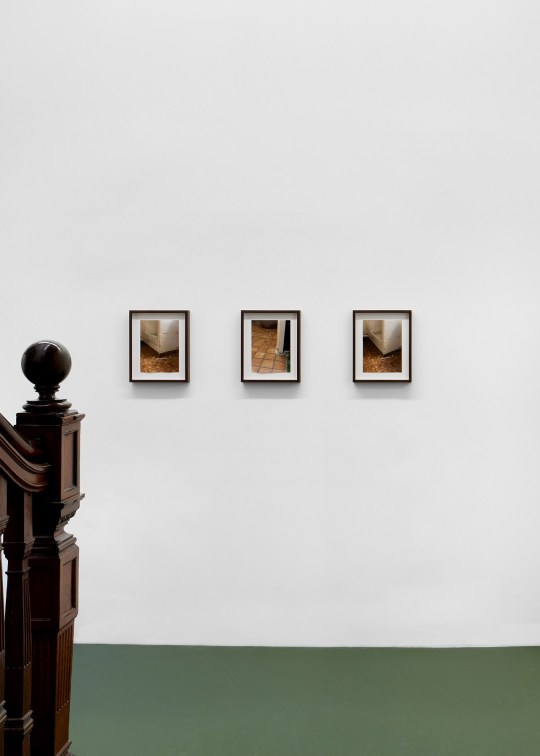
Emily Barker Cité Internationale des Arts Studio 1732, 1, 2023 digital c-print on glossy paper 25.4 x 17.8 cm (10 x 7 inches) 34.7 x 28.4 cm (13 5/8 x 11 1/8 inches) (framed)
1 note
·
View note
Text
LIVE GALLERY: Bliss N Eso, Cairns
LIVE GALLERY: Bliss N Eso, Cairns
Pics: Emily Barker

View On WordPress
#Bliss N Eso#Cairns#Emily Barker#Far North Queensland#featured#hip hop#live gallery#live music#North Queensland
0 notes
Text

Emily Barker, Bathroom wall (across from the sink), (drywall and wood), 2023 [Sentiment, Zürich. © Emily Barker]
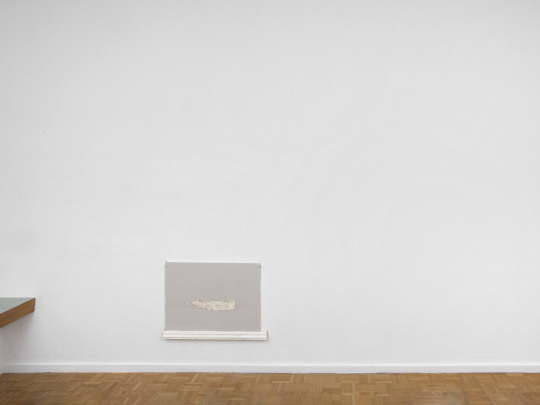

Exhibition: Emily Barker: 'Wall Works', Sentiment, Zürich, November 18, 2023 – January 13, 2024 (extended until January 27, 2024) [Photo: Philipp Rupp / Julien Gremaud]
29 notes
·
View notes
Text
Emily Barker gives Stroud a Dark Murmuration of Words and much more
Emily Barker gives Stroud a Dark Murmuration of Words and much more
Emily Barker, whose latest album A Dark Murmuration of Words was released in September 2020, played the second of her two-date “tour” at the Subscription Room, Stroud on 9th April. A home gig for her and her band, Emily was happy to tell everyone she got to sleep in her own bed that night.
For those not familiar with Emily Barker, she is an award-winning singer-songwriter, best known as the…
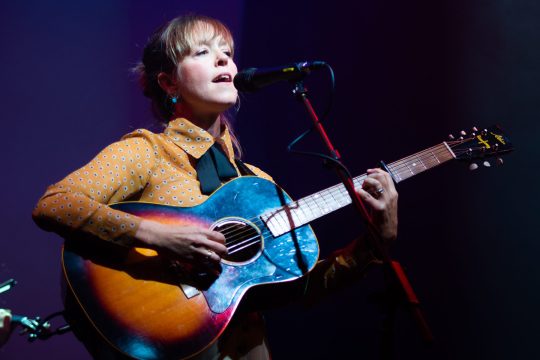
View On WordPress
0 notes
Photo
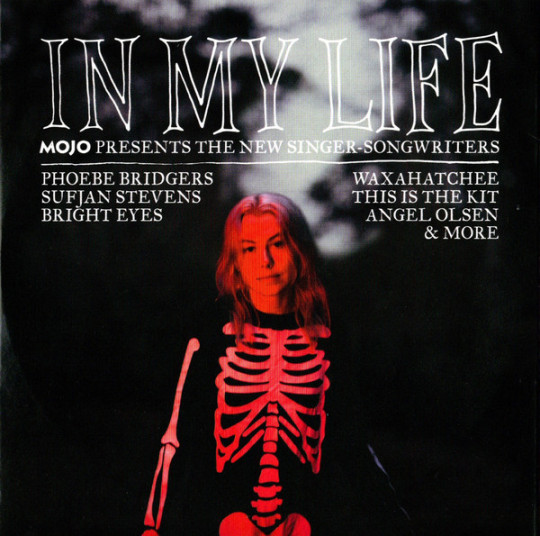
10:17 AM EST February 25, 2024:
Emily Barker - "Return Me"
From the album
Mojo Presents In My Life: The New Singer-Songwriters
(August 18, 2020)
Last song scrobbled from iTunes at Last.fm
0 notes
Text
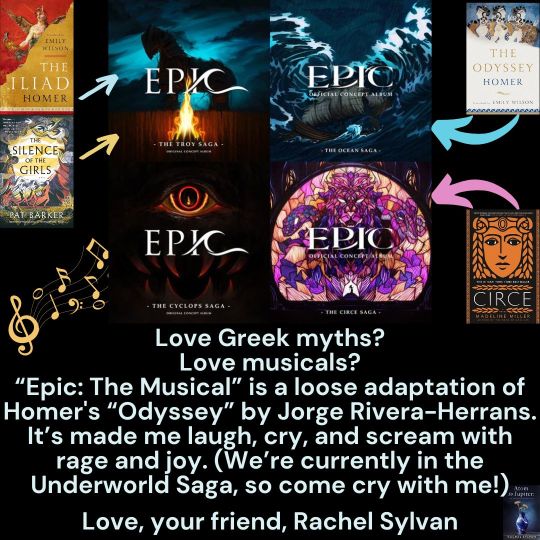
What I've been listening to on repeat!
"Epic: the Musical" by Jorge Rivera-Herrans.
The musical is based on Homer's epic, "The Odyssey."
Books that take place during his Troy Saga include "The Iliad" by Homer (translated by Emily Wilson) and "The Silence of the Girls" by Pat Barker.
His Circe Saga meets the same "Circe" explored by Madeline Miller.
Thank you @jayherrans for creating this! It makes my theatre-kid heart happy! ❤️
Question: What is your favorite Greek Myth retelling and/or What are you listening to?
#Epic#Epic the musical#jorge rivera herrans#ancient greek mythology#greek myth#ancient greece#greek gods#greek myths#greek literature#The Iliad#the odyssey#Homer#Emily Wilson#Circe#madeline miller#The Silence of the Girls#Pat Barker#Musical#Musical Theatre#Theatre kid#Musicals#Broadway
42 notes
·
View notes
Text
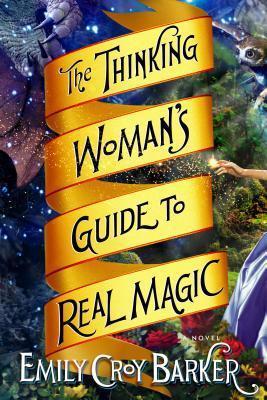
vote YES if you have finished the entire book.
vote NO if you have not finished the entire book.
(faq · submit a book)
#fantasy#books#The Thinking Woman's Guide to Real Magic#Emily Croy Barker#poll#result: no#l: English
6 notes
·
View notes
Text
Three weeks and only ten shows remain for Cast 13 of the Oasis of the Seas, with the start of another week at the office yesterday (05 July 2023), and some fun today.
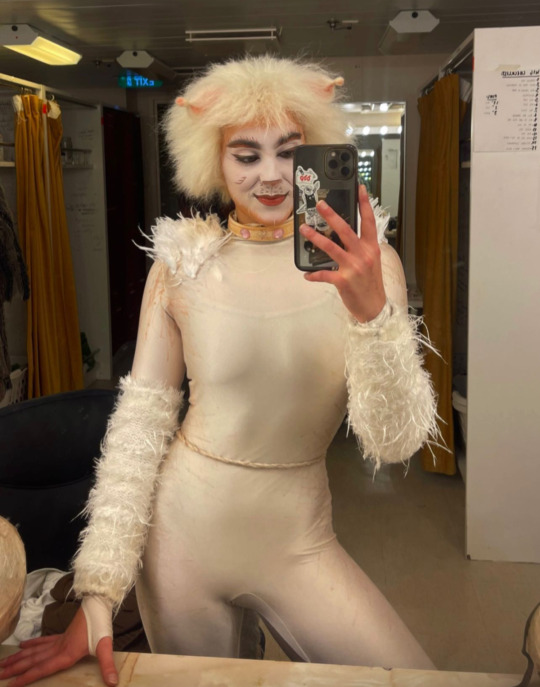

We only have so much more time with Issy Moore as Victoria and Taila Halford as Jellylorum.
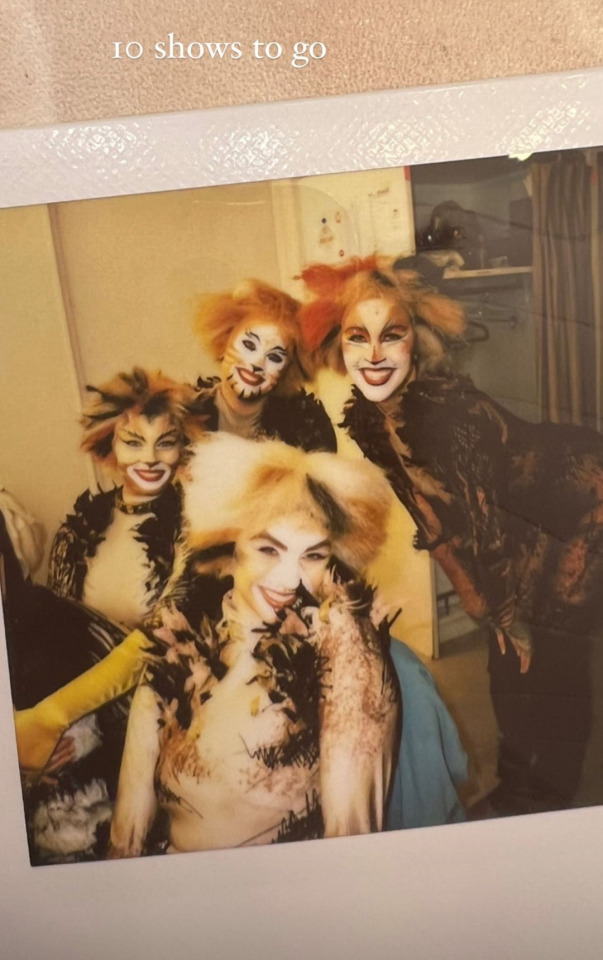
Taila joined by Phoebe Charles as Demeter, Emma Brynn Cooper as Jennyanydots, and Emily Ormiston as Bombalurina.
Anna Sofia McGuire as Rumpleteazer and Lance Barker as Mungojerrie move into the new week.
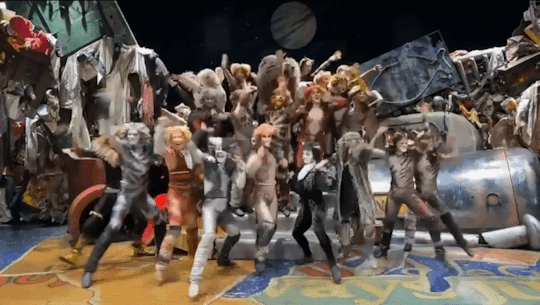
The whole Cast gets an updated family photo.
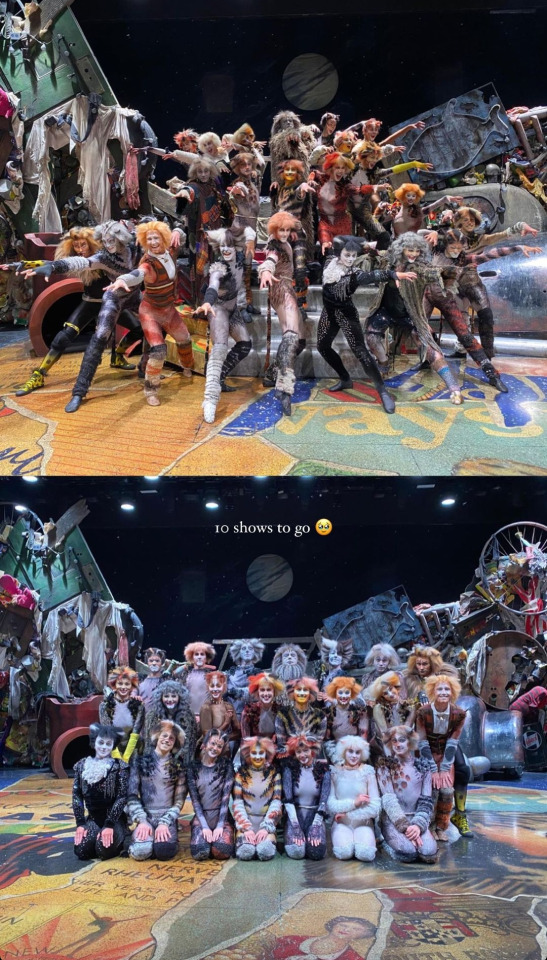


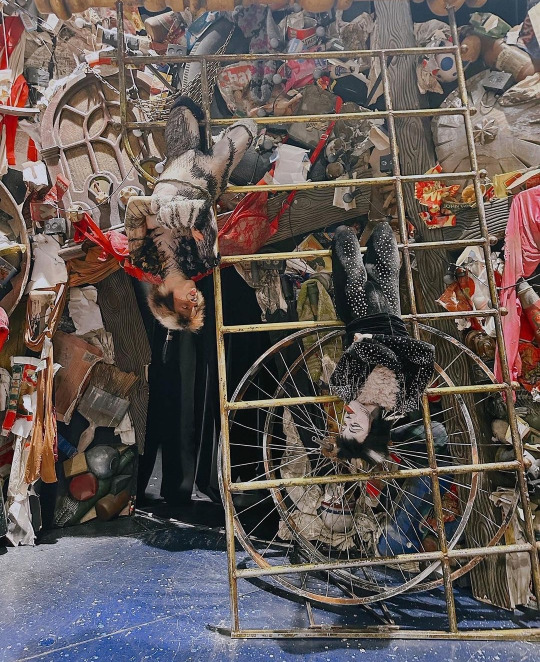

Cory Betts as Pouncival and Sam Bateson as Mistoffelees hang around together.


Luke Stone as Coricopat with his favourite hallway.

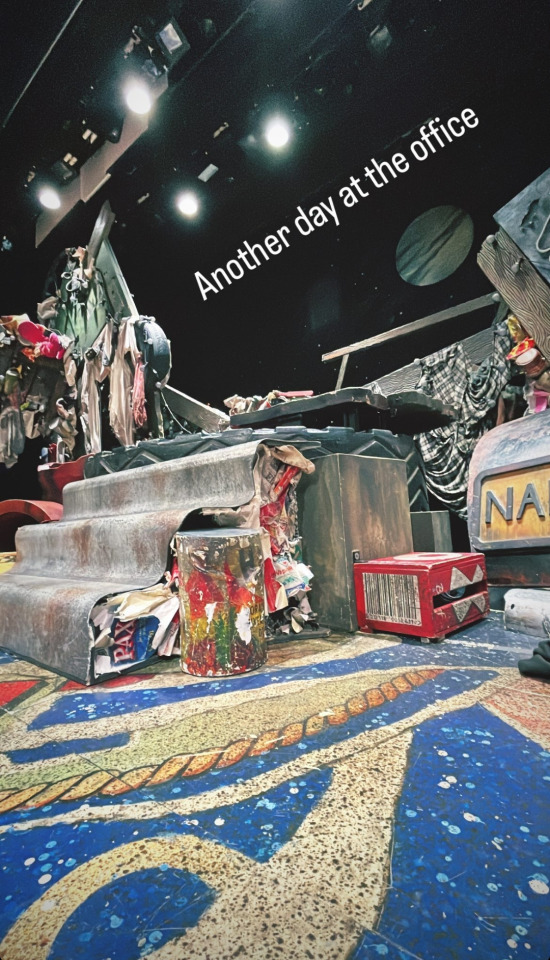
Emily Ormiston's golden hair makes its rounds again, just another day at the office for CATS!
#CATS the Musical#CATS Musical#CATS RCCL Cast 13#Victoria#Issy Moore#Jellylorum#Taila Halford#Bombalurina#Emily Ormiston#Demeter#Phoebe Charles#Jennyanydots#Emma Brynn Cooper#Rumpleteazer#Anna Sofia McGuire#Mungojerrie#Lance Barker#Coricopat#Luke Stone#Mistoffelees#Sam Bateson#Pouncival#Cory Betts
17 notes
·
View notes
